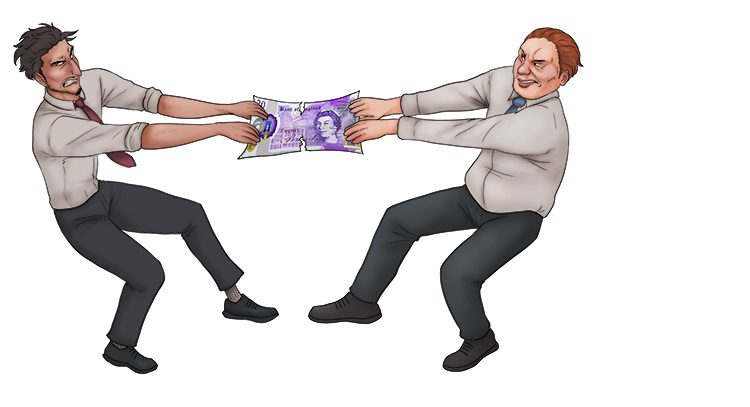Profit Sharing – A scheme that pays employees an additional amount based on the year's profits
The term profit sharing is self explanatory.
As we know, profit = the difference between the money received from the sale of goods/services and the amount that remains after all the costs have been paid.
In this case, sharing = dividing a portion of the profits between staff members = profit sharing.

Profit sharing is a type of employee compensation in which a company shares a portion of its profits with its employees. The amount of profit sharing that employees receive is typically based on their salary/wages, and the company’s overall profitability.
Profit sharing can be a great way to motivate and reward employees, and it can also help improve employee morale and productivity. Additionally, profit sharing can help to attract and retain top talent as it gives employees a sense of ownership in the company and its success while differentiating it from competitors.
However, there are also some potential drawbacks to profit sharing, including the fact that it can be costly for a business, especially if the company has a large number of employees. It can also be complex to set up and administer a profit sharing plan. The uncertainty of how much they’ll make from the profit share every year may make it difficult for employees to plan financially, leaving them preferring simply a higher salary instead.
Perhaps the most famous example of profit sharing in a UK company is the department store chain John Lewis & Partners, who regularly share profits with staff, including £410 million in 2013, equivalent to 17% of employee’s yearly salary. This has contributed to John Lewis regularly winning polls which gauge the best companies to work for in the UK.
Profit sharing does not always go so well however, which can be seen after American auto parts supplier Delphi went bankrupt in 2008. At the time, Delphi had a profit sharing plan in place, but when they went bankrupt, they were unable to pay out this bonus for which employees had sacrificed a higher salary for. This led to a great deal of resentment among Delphi employees and negative press.




